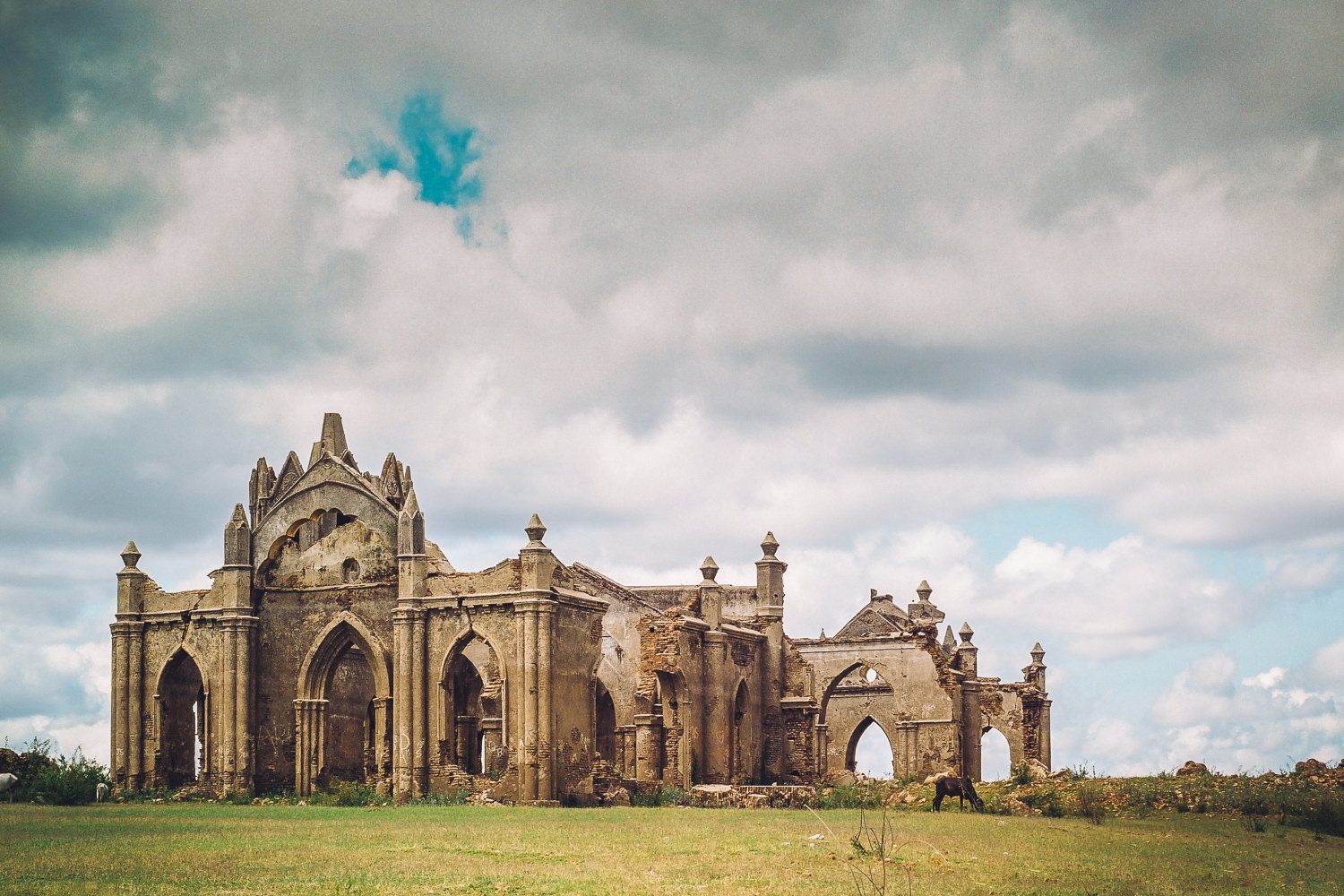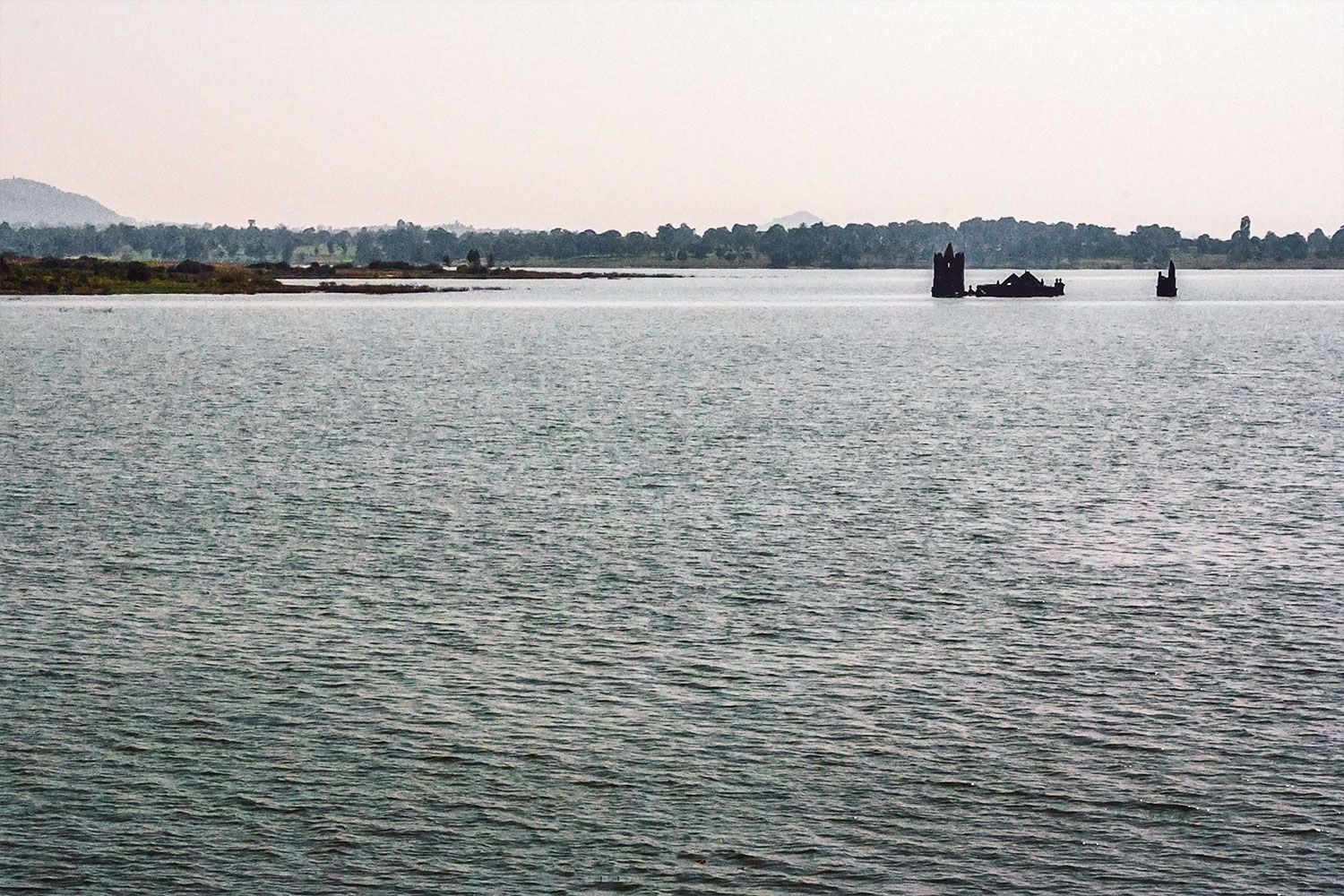The Drowned French Church At Magge
But I saw and wondered at the power of government — how when they so choose they can arrive at a citizen's door and tell them to leave because they're going to flood their home.

We discovered a neat narrow road from Magge to Hassan with no pot-holes in it. Mid-way, we entered a long high bridge, from which we saw a building in ruin that looked like a church. We went down the bridge and walked over to the building and spoke with a lone old man grazing cattle. The building before us was a church all right, and it had been battered hard over time as we could see.
The old man spoke of years ago when this church was living, of the thousands of people who lived in the village that existed on the spot — of which the church was part. A convent-school ran close to the church, and there were orchards ringing the village. He remembered the deluge when the Gorur Dam was commissioned. People had died, he said, but he could be wrong, not being very lucid. He told the story with many repetitions, and suddenly, without changing expression, he became eloquent. In a high pitch cried that crores died when the waters came over. Then he repeated the charge. His aged voice grew intense, and speaking was proving to be a strain on his frail body. The only way to end his self-torture was to leave. This was a poor man, and the cattle he was herding belonged to others. I thought he might ask for a little cash for a cup of coffee. He didn't.
When the monsoons arrive in June, and the Gorur reservoir fills up, the church and the vast expanse around it will be drowned. The yearly cycle will repeat.
I've not been able to verify if people died. The old man's account was garbled, and exaggerated by imagination and the fading remembrance of a tumultuous event. But I saw and wondered at the power of government — how when they so choose they can arrive at a citizen's door and tell them to leave because they're going to flood their home.


